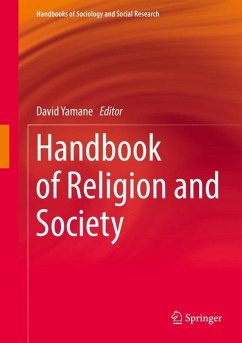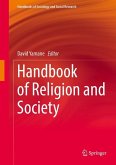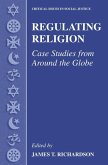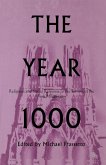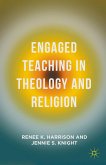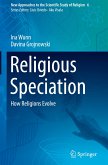The Handbook of Religion and Society is the most comprehensive and up-to-date treatment of a vital force in the world today. It is an indispensable resource for scholars, students, policy makers, and other professionals seeking to understand the role of religion in society. This includes both the social forces that shape religion and the social consequences of religion.
This handbook captures the breadth and depth of contemporary work in the field, and shows readers important future directions for scholarship. Among the emerging topics covered in the handbook are biological functioning, organizational innovation, digital religion, spirituality, atheism, and transnationalism. The relationship of religion to other significant social institutions like work and entrepreneurship, science, and sport is also analyzed. Specific attention is paid, where appropriate, to international issues as well as to race, class, sexuality, and gender differences.
This handbook includes 27 chapters by a distinguished, diverse, and international collection of experts, organized into 6 major sections: religion and social institutions; religious organization; family, life course, and individual change; difference and inequality; political and legal processes; and globalization and transnationalism.
This handbook captures the breadth and depth of contemporary work in the field, and shows readers important future directions for scholarship. Among the emerging topics covered in the handbook are biological functioning, organizational innovation, digital religion, spirituality, atheism, and transnationalism. The relationship of religion to other significant social institutions like work and entrepreneurship, science, and sport is also analyzed. Specific attention is paid, where appropriate, to international issues as well as to race, class, sexuality, and gender differences.
This handbook includes 27 chapters by a distinguished, diverse, and international collection of experts, organized into 6 major sections: religion and social institutions; religious organization; family, life course, and individual change; difference and inequality; political and legal processes; and globalization and transnationalism.
"Editor Yamane has assembled the contributions of 26 authors who assess the state of current theory and research and expand the scope of the analysis of religion and society to include discussions of racial, ethnic, gender, and class diversity in a global context. ... An indispensable resource for undergraduates and advanced scholars who seek short, cogent essays that will introduce them to the subspecialties of the sociology of religion. Summing Up: Essential. All levels/libraries." (J. H. Rubin, Choice, Vol. 54 (5), January, 2017)

